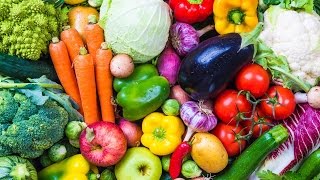Exercise Daily – In recent years, the importance of sustainable eating has gained significant attention due to its potential to address environmental concerns and improve human health. As people become more conscious of their dietary choices, plant-based nutrition has emerged as a key aspect of sustainable eating practices. eCornell, a renowned online education platform, has taken a proactive role in promoting plant-based nutrition and providing valuable resources to individuals interested in adopting a sustainable and healthier lifestyle. Let’s see the significance of eCornell’s plant-based nutrition program and its potential to shape the future of sustainable eating.
The program covers the science behind a plant-based diet, including its benefits for athletes. This information can help athletes make informed decisions about their nutrition and optimize their performance. It also covers the role of nutrition in chronic disease, which is a major concern for athletes. By understanding the relationship between nutrition and health, athletes can take steps to reduce their risk of developing chronic diseases.
The program also teaches strategies for sustainable positive lifestyle change. This information can help athletes make changes to their diet that are both healthy and sustainable.
The Rise of Sustainable Eating
With increasing concerns about climate change, deforestation, and the impact of animal agriculture on the environment, sustainable eating has gained considerable traction. Sustainable eating refers to dietary choices that promote environmental stewardship, conserve resources, and prioritize animal welfare. By opting for sustainable food options, individuals can contribute to reducing greenhouse gas emissions, conserving water, and preserving biodiversity.

Plant-Based Nutrition
1. The Basics of Plant-Based Diets
Plant-based diets focus on consuming foods primarily derived from plants, such as fruits, vegetables, legumes, whole grains, nuts, and seeds. These diets may include varying amounts of animal products, depending on individual preferences. Some individuals follow strict vegan diets, which exclude all animal-derived foods, while others adopt a more flexible approach by incorporating small amounts of animal products.
2. Health Benefits of Plant-Based Nutrition
Numerous scientific studies have highlighted the health benefits associated with plant-based nutrition. A plant-based diet rich in whole foods provides ample amounts of essential nutrients, vitamins, minerals, and dietary fiber. Such diets have been linked to a reduced risk of chronic diseases, including heart disease, diabetes, certain cancers, and obesity. Additionally, plant-based diets are generally lower in saturated fat and cholesterol, making them favorable for cardiovascular health.
3. Environmental Impact of Plant-Based Diets
The environmental impact of food production and consumption is a pressing global concern. Animal agriculture, particularly livestock production, contributes significantly to greenhouse gas emissions, deforestation, and water pollution. In contrast, plant-based diets have a lower carbon footprint and require fewer natural resources. By embracing plant-based nutrition, individuals can significantly reduce their ecological footprint and contribute to a more sustainable future.

eCornell Plant Based Nutrition Pros and Cons
Plant-based nutrition is a dietary approach that emphasizes the consumption of whole, unprocessed plant foods while minimizing or eliminating animal products. This diet consists of fruits, vegetables, whole grains, legumes, nuts, and seeds, providing essential nutrients while reducing the intake of saturated fats and cholesterol.
Pros of eCornell Plant-Based Nutrition Course
1. Quality Course Content
eCornell’s plant-based nutrition course is backed by Cornell University’s expertise and research. The curriculum is meticulously crafted to deliver comprehensive knowledge about plant-based nutrition, covering topics such as macronutrients, micronutrients, meal planning, and the health benefits associated with this dietary approach.
2. Flexible Learning Options
One of the significant advantages of eCornell’s plant-based nutrition course is the flexibility it offers. The program is delivered entirely online, allowing learners to access course materials at their convenience. Whether you have a full-time job or other commitments, you can study at your own pace and create a learning schedule that fits your lifestyle.
3. Expert Faculty
The course is taught by experienced instructors who are experts in the field of nutrition. These faculty members possess extensive knowledge and practical insights, ensuring that learners receive accurate and up-to-date information. Their expertise enhances the learning experience and enables students to gain valuable insights from professionals in the field.
4. Interactive Learning Experience
eCornell’s platform incorporates interactive elements that enhance the learning experience. Students can participate in discussion forums, collaborate with peers, and engage in practical exercises to reinforce their understanding of plant-based nutrition concepts. The interactive nature of the course fosters engagement and facilitates a deeper understanding of the subject matter.
5. Networking Opportunities
eCornell’s plant-based nutrition course provides networking opportunities with fellow learners who share a similar interest in plant-based diets. Through online forums and virtual interactions, students can connect with individuals from diverse backgrounds, exchange ideas, and build professional relationships. This network can be valuable for future collaborations or career advancements.
6. Recognized Certification
Upon successfully completing the eCornell plant-based nutrition course, learners receive a certificate of completion from Cornell University. This certification carries weight and is recognized by employers and professionals in the nutrition and healthcare industries. It can enhance your credibility and open doors to career opportunities in nutrition-related fields.

Cons of eCornell Plant-Based Nutrition Course
1. Limited Practical Application
While eCornell’s plant-based nutrition course offers valuable theoretical knowledge, it may have limited practical application. As an online program, it may not provide hands-on experience or supervised practice opportunities. Learners might need to seek additional practical training or apply their newfound knowledge in real-life situations independently.
2. Cost Considerations
The cost of enrolling in eCornell’s plant-based nutrition course is an important factor to consider. As an online educational program affiliated with a prestigious institution, the course fees may be relatively higher compared to other online platforms. Prospective students should evaluate their budget and determine if the investment aligns with their career goals and financial situation.
3. Self-Motivation and Discipline
Online courses demand self-motivation and discipline to ensure successful completion. Without physical classrooms or strict schedules, learners must be proactive in managing their time and dedicating sufficient effort to the course. Those who struggle with self-discipline may find it challenging to stay engaged and complete the program successfully.
4. Lack of Personalized Guidance
Unlike traditional classroom settings, eCornell’s plant-based nutrition course may lack personalized guidance and one-on-one interactions with instructors. While there are discussion forums and support channels, learners might find it difficult to receive immediate feedback or tailored guidance for their specific needs. This self-directed learning approach may not suit everyone.
5. Time Commitment
eCornell’s plant-based nutrition course requires a significant time commitment for successful completion. Although the course is self-paced, it still requires dedication and regular study to grasp the content effectively. Individuals with busy schedules or limited availability might find it challenging to allocate sufficient time for learning and coursework.

eCornell: Empowering Individuals through Education
1. The Role of eCornell
eCornell, a leading online education platform, recognizes the importance of education in driving positive change. With a mission to provide accessible and comprehensive learning opportunities, eCornell plays a crucial role in empowering individuals to make informed choices regarding their health and lifestyle. Through their innovative online programs, they aim to inspire and equip learners with the knowledge and skills necessary to embrace sustainable practices.
2. eCornell’s Plant-Based Nutrition Program
One of the notable programs offered by eCornell is their Plant-Based Nutrition program. Designed to cater to individuals from diverse backgrounds, this program offers a comprehensive understanding of plant-based diets, nutrition, and their impact on health and the environment. Participants have the opportunity to delve into topics such as plant-based cooking, meal planning, and the science behind plant-based nutrition. By enrolling in this program, individuals can gain valuable insights and practical skills to transition to a plant-based lifestyle successfully.
3. Expert Faculty and Comprehensive Curriculum
eCornell’s Plant-Based Nutrition program boasts a team of renowned experts and faculty members who are leaders in the field of nutrition and sustainable eating. These experts bring their wealth of knowledge and experience to the program, ensuring that learners receive the most up-to-date and accurate information. The curriculum is carefully curated to cover various aspects of plant-based nutrition, including the health benefits, culinary techniques, and environmental impact. With interactive learning modules, engaging assignments, and access to a supportive online community, eCornell provides a dynamic and immersive learning experience for all participants.
The Future of Sustainable Eating with eCornell
1. Influencing Food Choices
eCornell’s Plant-Based Nutrition program has the potential to shape the future of sustainable eating by influencing individuals’ food choices. Through education and awareness, participants can develop a deeper understanding of the benefits of plant-based diets and the impact of their dietary decisions. Armed with this knowledge, individuals are empowered to make conscious choices that align with their values and contribute to a more sustainable food system.
2. Shaping Culinary Practices
The program offered by eCornell not only focuses on the nutritional aspects of plant-based diets but also emphasizes culinary techniques and creativity. By exploring plant-based cooking methods, recipe development, and flavor combinations, participants can expand their culinary repertoire and discover the delicious possibilities of plant-based cuisine. This culinary focus not only enhances the enjoyment of plant-based meals but also encourages individuals to embrace sustainable eating as a flavorful and exciting lifestyle choice.
3. Addressing Global Food Security
As the global population continues to grow, ensuring food security becomes a paramount concern. Plant-based nutrition plays a significant role in addressing this challenge. By promoting plant-based diets, eCornell’s program contributes to the sustainable use of resources and the reduction of food waste. Plant-based diets require less land, water, and energy compared to traditional animal-based diets, making them a viable solution for feeding a growing population sustainably.

What is included in a plant-based diet?
Following a plant-based diet is a significant aspect of plant-based nutrition. To gain comprehensive knowledge and expertise in this field, individuals can consider pursuing a nutrition certification such as the Cornell course on plant-based nutrition. This course, developed by renowned professor emeritus of nutritional biochemistry, Colin Campbell, offers key course takeaways and perspectives in nutrition.
By enrolling in Cornell University’s online course, participants can learn about the startling implications for diet and society, and how nutrition plays a crucial role in health and wellness. Moreover, the course authors, including Campbell himself, have conducted extensive research and authored 300 papers on the topic. Consequently, students can benefit from their wealth of knowledge and expertise in the field.
They provide evidence-based information on health and nutrition, focusing on the importance of diet and its impact on common chronic diseases, such as coronary heart disease, cancer, and autoimmune disorders. The course also emphasizes the wholistic approach of whole foods, differentiating between reductionist and complex interactions when analyzing how diet affects disease.
Furthermore, the course addresses topics like improving athletic performance and the supplementation requirements of athletes. By participating in the development of national and international nutrition policies, individuals completing this course can gain insights into the troubled state of health in America and worldwide.
The course breaks into three two-week classes, which offer a comprehensive overview of plant-based nutrition and provide the tools that support positive personal behavior. Upon completion, individuals can earn certification in plant-based nutrition and continuing education credits. If you’re interested in learning more about the importance of diet and nutrition, request information and enroll today to embark on a journey toward a plant-based lifestyle.
Conclusion
In conclusion, eCornell’s Plant-Based Nutrition program is at the forefront of driving sustainable eating practices and shaping the future of nutrition. By providing accessible and comprehensive education, eCornell empowers individuals to make informed choices that positively impact their health and the environment. As more people embrace plant-based nutrition, the potential for creating a more sustainable and healthier world becomes increasingly attainable.
FAQs – eCornell Plant-Based Nutrition Pros and Cons
Can I take the eCornell Plant-Based Nutrition course if I’m not a nutritionist?
Absolutely! The eCornell Plant-Based Nutrition course is open to individuals from various backgrounds who have an interest in plant-based diets. You don’t need to be a nutritionist or have prior experience in the field to enroll in the program.
Does eCornell offer financial aid or scholarships for their courses?
Yes, eCornell provides financial aid and scholarships for eligible individuals. It’s recommended to visit their official website or contact their admissions team for detailed information on available financial assistance options.
Can I access course materials after completing the program?
Yes, after completing the eCornell Plant-Based Nutrition course, you can access the course materials and resources for a certain period. This allows you to review the content, refer back to specific topics, or refresh your knowledge whenever needed.
Will the eCornell certification be recognized in the industry?
Yes, the nutrition and healthcare industries widely recognize the eCornell certification. Affiliated with Cornell University, the certificate holds credibility and can enhance your professional profile.
Are there any prerequisites for enrolling in the plant-based nutrition course?
There are no specific prerequisites for enrolling in the eCornell Plant-Based Nutrition course. It is designed to accommodate learners from various backgrounds and experience levels.
What is plant-based nutrition?
Plant-based nutrition refers to dietary patterns that focus primarily on consuming foods derived from plants, such as fruits, vegetables, grains, legumes, nuts, and seeds. These diets may include varying amounts of animal products or exclude them altogether. The emphasis is on maximizing the intake of nutrient-dense plant foods while minimizing the consumption of processed foods and animal-derived products.
Is a plant-based diet suitable for everyone?
Yes, a plant-based diet can be suitable for people of all ages and dietary preferences. However, it is essential to ensure that all nutrient requirements are met through a well-planned and balanced plant-based diet. Consulting with a healthcare professional or registered dietitian can provide personalized guidance to meet individual nutritional needs.
How can eCornell’s program benefit me?
eCornell’s Plant-Based Nutrition program offers a wealth of knowledge and practical skills to support individuals interested in adopting a plant-based lifestyle. By enrolling in the program, you can gain a comprehensive understanding of plant-based nutrition, learn culinary techniques, and discover the health and environmental benefits associated with sustainable eating.
Can plant-based nutrition contribute to weight loss?
Yes, plant-based nutrition can contribute to weight loss. Plant-based diets are often rich in fiber, low in saturated fat, and packed with essential nutrients. These dietary factors, combined with portion control and a balanced approach, can support weight management and overall well-being.





